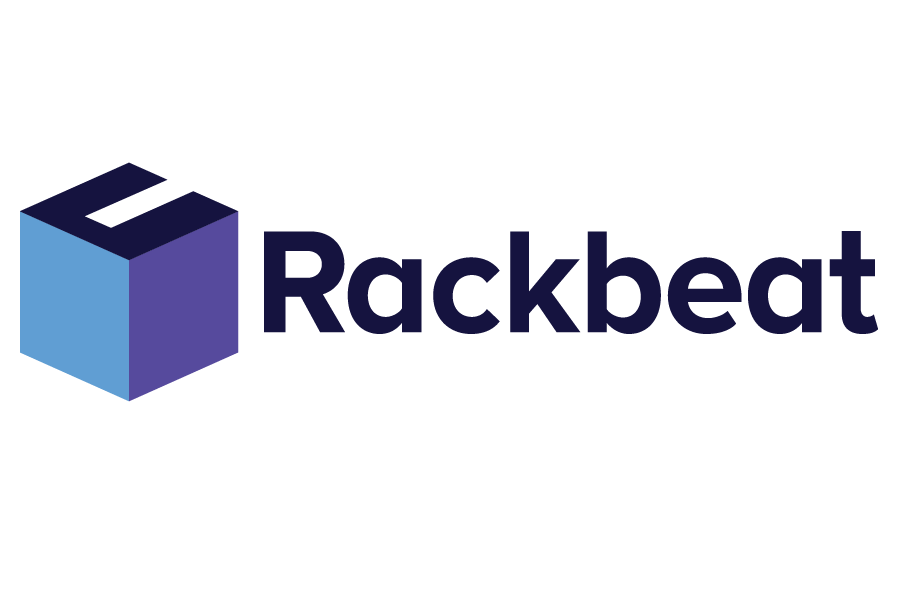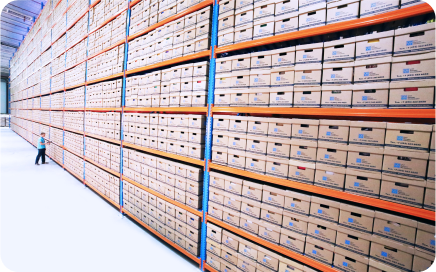Outsource Your Warehouse Management or Keep It In-House?
By Rackbeat June 7, 2024

To Run Your Own Warehouse, or Not to Run Your Own Warehouse
Whether your business is experiencing growth or is in its early stages, you face a fundamental question regarding your inventory management:
How do you house your most important asset, your products, most cost-effectively?
Perhaps you currently outsource your inventory but are considering if it’s time to invest in your own warehouse. Or maybe you haven’t yet decided which warehouse solution best fits your needs. Regardless of your situation, it’s essential to understand the options available in outsourcing your warehouse management versus running your own warehouse. It’s also crucial to be clear on which tools can ease the burden of your inventory management.
In this blog, we dive into the pros and cons of both warehousing solutions. We will explore how each option can impact your company’s efficiency, costs and growth potential, so you can make an informed decision.
But first:
What is Outsourced Warehousing?
When you opt for outsourced warehousing, it takes place at a facility known as a warehouse hotel – also known as a third-party logistics provider (3PL). These providers offer storage and often other logistical services for companies that prefer to let a third party handle warehouse tasks – hence “outsourced warehousing.”
This service can be particularly advantageous for small and medium-sized businesses that may not have the capital or need to run their own warehouse independently.
While outsourcing warehousing offers certain economic and operational benefits, it can also lead to some limitations in your inventory management that you need to consider carefully.
The Advantages of Outsourced Warehousing
- Lower Startup Costs: You do not need to invest in purchasing or leasing a large warehouse space, meaning you avoid the substantial capital expenses associated with buying or leasing warehouse space. You only pay for the space and services you actually use.
- Scalability: With outsourced warehousing, you can easily scale up or down as needed without investing in additional physical space. This is particularly useful for businesses with fluctuating sales patterns.
- Less Time Used on Daily Operations: You don’t have to worry about maintaining the warehouse or hiring warehouse staff. Warehouse hotels specialize in warehouse management and logistics, which means they can often achieve higher efficiency and accuracy in task execution than a company that handles these tasks itself.
Disadvantages of Outsourced Warehousing
Less Control:
When you choose outsourced warehousing, you delegate a significant part of your operations to an external service provider. This means you do not have the same daily control over warehouse processes as you would with in-house warehousing. For example, you may have limited influence over:
- Product Handling: How your products are stored, the security measures applied, and how they are handled during packing and shipping.
- Warehouse Location: How and where your products are placed in the warehouse, which can affect the efficiency of your order management.
- Order Prioritization: During busy periods, you may find that your orders are not prioritized if the warehouse hotel serves other customers with similar or greater needs.
Potentially Higher Long-Term Costs:
While outsourcing warehousing may seem like a cost-effective solution in the short term, the long-term costs may be higher compared to running your own warehouse. This is due to several factors:
- Rent Costs: Ongoing payments to the warehouse hotel can accumulate over time, especially if your business grows and requires more space.
- Service Fees: In addition to basic warehouse space, there may be additional fees for extra services such as picking and packing, shipping and returns handling.
- Scaling: As your business grows, the costs of scaling within a warehouse hotel may exceed what it would cost to invest in and expand your own warehouse.
Dependence on Third Parties:
By using outsourced warehousing, your company’s logistical operations depend on an external provider’s capabilities and reliability. This can lead to several challenges:
- Risk of Service Errors: Errors in the warehouse hotel’s operations, such as picking errors, shipping delays, or poor handling of returns, can directly affect your customer satisfaction and brand reputation.
- Contract Terms: You are bound by the contractual terms set by the warehouse hotel, which can limit your flexibility to quickly adapt your logistics strategy to market changes or changes in your business.
After considering the various pros and cons of outsourcing warehousing to a warehouse hotel, it’s now time to take a closer look at the possibilities offered by running your own warehouse. Overall, you gain greater control over logistical operations when you run your own warehouse, which also raises the demands on your daily workflows.
This Is Why It’s a Good Idea to Run Your Own Warehouse
You Have Full Control Over the Warehouse
- Direct Management: With your own warehouse, you have direct control over every detail of inventory management. This ranges from security procedures to methods for receiving, storing, picking and packing and shipping goods.
- Quality Assurance: You are better able to ensure that all operations meet the standards and quality requirements set by your company. This is especially critical for companies with specialized products or high handling requirements.
Optimization of Operations:
- Technological Integration: With your own warehouse, you can fully utilize the technological aids for warehouse processes available on the market. This includes a Warehouse Management System (WMS) or robots for picking and packing, which can improve accuracy, save you a lot of time, and reduce costs in the long run.
Long-Term Savings:
- Reduced Operating Costs: Although some investment is required when establishing or leasing a warehouse, costs can end up being lower if the warehouse is operated efficiently. This is partly due to the ability to optimize warehouse layout and processes, which can reduce waste and inefficiency in order processing.
- Business Scaling: With your own warehouse, you have the flexibility to scale your operations up or down without having to negotiate new contracts or pay additional fees to third parties. This can be a significant advantage during periods of rapid growth or seasonal fluctuations in demand.
Disadvantages of Running Your Own Warehouse
High Initial Costs:
- Property Acquisition: Buying or leasing warehouse facilities requires a significant financial commitment. Costs can vary depending on the warehouse’s size and location. This can be a major barrier for smaller businesses or start-ups with limited capital resources.
- Setup and Equipment: Additionally, the warehouse must be equipped with appropriate shelves and handling equipment such as forklifts.
Resource-Intensive:
- Staff: Running your own warehouse requires qualified staff to manage operations, including warehouse workers, logistics coordinators, and possibly a management team. Recruiting, training, and salaries for these employees constitute ongoing costs that can burden the company’s operating budget.
Final Thoughts on Your Warehouse Choice
The choice between a warehouse hotel and running your own warehouse depends on your company’s specific needs, growth projections, and capital.
However, more precisely, we can say that the transition from a warehouse hotel to your own warehouse often occurs when a company reaches a point where long-term savings and control outweigh the initial lower costs of a warehouse hotel.
It is also important to consider personnel costs and potential challenges during the transition. If you use a cloud-based WMS, you can get help with the increased control demands placed on your shoulders by running your own warehouse, as you get real-time updates on inventory, the ability to record incoming goods and location management.



